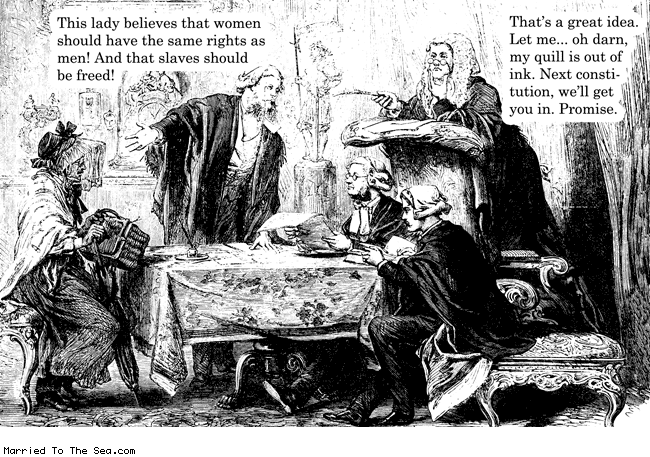If Meta-Wednesday has taught us anything, it is that things need definitions, that those definitions are fluid, and that definitions will likely be the end of us. To try and prevent this, I have turned to one of the supreme authorities around to try to find a suitable definition of history. So begins the Epic Battle of Urban Dictionary Versus Sonic.
Let the games begin!
1) The tale of how many different nations, from all across the world, gained their independence from Great Britain.
Sonic Says: Close. No cigar.
2) A helpful course, usually taught in school, where students learn that Hitler was bad and jackshit else.
Sonic Says: Partial credit for being partially true.
3) Events that occured in the past.
Sonic Says: OR DID THEY??? See number 4.
4) What repeats itself over and over and over again.
Sonic Says: OH REALLY? See number 5.
5) Postmodernists say we don't really know what happened in the past, therefore we can't know if a) it really occurred in the past or b) if it is repeating itself over and over.
Sonic Says: This is why we can't wait for post-postmodernism. And post-post-postmodernism.
6) A pretty decent class where you can learn about anything ranging from the Egyptians to the Rennaissance to World War II, and much more.
Sonic Says: The "much more" really saved this one from the intellectual latrine.
7) Something the British created.
Sonic Says: What's with the freaking British???
8) A tale made up to explain to the wife why you came home drunk.
Sonic Says: No.
9) The way the dead torture the living.
Sonic Says: Yes.
10) [a list with examples!]
1 everything that happened in the past
, more specially since humans learned to write.
2 everything that got written down and was accepted as "the history" by some elite or another.
3 the field of study of 1 and 2. Discusses all kinds of explanations of what happened.
4 a school subject devoted almost exclusively to 2.
1 Johnny Cash is history.
2 The history of the colonization of America has little to do with what actually happened.
3 An interesting question in history is whether guns, diseases or beliefs were more important factors in eliminating the Native Americans.
4 History is quite boring, especially if it's about your own country.
Sonic Says: This was looking good until the examples. Show me the historian that thinks beliefs 'eliminated' the Native Americans. Also, if the author things that question 3 is interesting, I really hope that they are not from America, as opposed to believing that Native American history is not, in fact, American history. Please also note Johnny Cash's appearance as an example of history.
11) What most people have a toally distorted view of due to being brainwashed by the government and indoctrinated in the government ran public school system.
Sonic Says: Caused by the British, no doubt.
12) A series of lies agreed upon by people who call them selves "historians".
Sonic Says: Oh dear.


 Christopher Capozziello for The New York Times
Christopher Capozziello for The New York Times